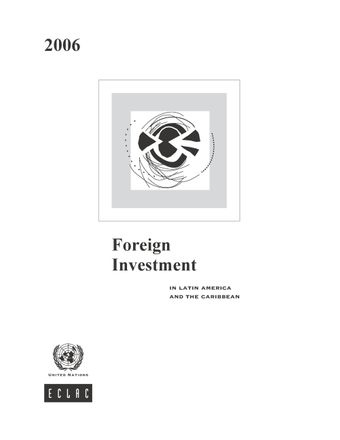Republic of Korea: Investment and corporate strategies in Latin America and the Caribbean

- Author: United Nations
- Main Title: Foreign Direct Investment in Latin America and the Caribbean 2006 , pp 89-146
- Publication Date: May 2006
- DOI: https://doi.org/10.18356/04c2bbff-en
- Language: English
The development experience of the Republic of Korea is impressive and provides important lessons for developing countries. The country was brought to a rude awakening during the twentieth century, first, by Japanese colonization (1910-1945), second, by a severe dependence on direct aid from the United States that conditioned its development options after the Second World War and, third, by the global clash between capitalism and communism that, as a result of the Korean War (1950-1953), left the country divided into a communist north and a capitalist south. The Republic of Korea, then a poor country with an economy based mainly on agriculture and mining —the two sectors accounted for about 50% of GDP— and a per capita GDP similar to that of some African countries such as Mozambique and Senegal, began in the early 1960s to take drastic measures aimed at becoming an independent economy (“Jarip Gyongjé”) through guided capitalism (“Gyodo Jabon-Jui”). As a consequence, public policies were deliberately aimed at building up national industrial and technological capabilities to gain international competitiveness.
-
From This Site
/content/books/9789213633717c009dcterms_title,dcterms_subject,pub_keyword-contentType:Journal -contentType:Contributor -contentType:Concept -contentType:Institution105

